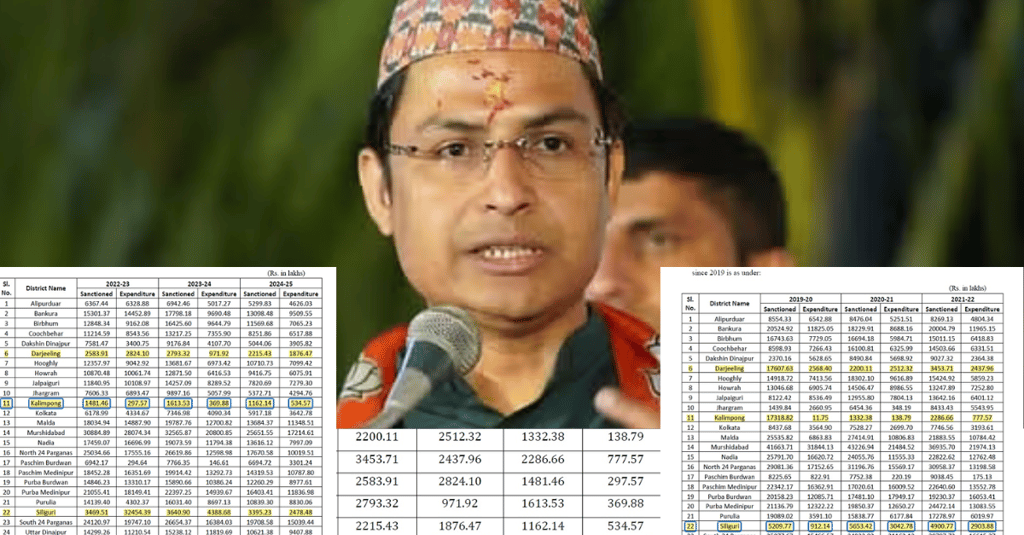Darjeeling MP Raju Bista slams poor fund utilisation in hill schools under SSA scheme
The situation in Kalimpong is worse—with only Rs 21.30 crore spent out of the Rs 251.95 crore sanctioned, which amounts to just 8.45% utilisation.
LOCAL


Darjeeling MP and BJP National Spokesperson Raju Bista has raised serious concerns over the underutilisation of central funds meant for school education in the hill districts of Darjeeling and Kalimpong under the Samagra Shiksha Abhiyan (SSA), a flagship scheme of the Government of India.
Raju Bista said that despite the Central Government’s continued support for improving education across India, the hill regions have received a raw deal. Citing figures from the response of Union Minister of State for Education, Jayant Chaudhary, Bista stated that Darjeeling district had been allocated Rs 308.54 crore under SSA between 2019-20 and 2024-25, but only Rs 131 crore (just 42.75%) has been utilised. The situation in Kalimpong is worse—with only Rs 21.30 crore spent out of the Rs 251.95 crore sanctioned, which amounts to just 8.45% utilisation.
In contrast, Siliguri has reported expenditure of Rs 461.80 crore—far more than its Rs 262.69 crore allocation, raising questions about fund diversion and regional imbalance. “It is disturbing to see how little has been done for our schools. Hundreds of schools in the hills are falling apart, teachers are lacking, and students are forced to study in crumbling buildings,” Bista said.
He further questioned whether the Gorkhaland Territorial Administration (GTA), which oversees education in the hill region, has failed in utilising the allocated funds or if the West Bengal Government has deliberately diverted these resources elsewhere. “If education is a transferred subject under GTA, why have they not attracted or utilised the full funds? Or is Kolkata blocking the money meant for our children?” he asked.
As per data provided by the West Bengal government, the SSA funds in Darjeeling and Kalimpong were used for limited purposes, including constructing one new school building, repairing five others, providing textbooks for students up to Class VIII, training 10,958 teachers, and offering aid to Children with Special Needs (CWSN). Other initiatives included vocational education, co-curricular activities under ‘Ananda Parisar’, and promotion of reading habits through rural libraries. Still, Bista argued, these limited achievements are no justification for such a massive gap in fund utilisation.
“While we appreciate the schemes like Shishu Sansad, YuWaah, and digital productivity training, these cannot cover up for the crumbling infrastructure, lack of staff, and overall educational neglect our students face daily,” Bista asserted.
He announced that he would be seeking detailed explanations from the relevant departments and urged the people of the hill region to demand accountability from both the state government and the GTA. “We must stand together and ask why our children are denied their right to equal and quality education,” Bista said.
